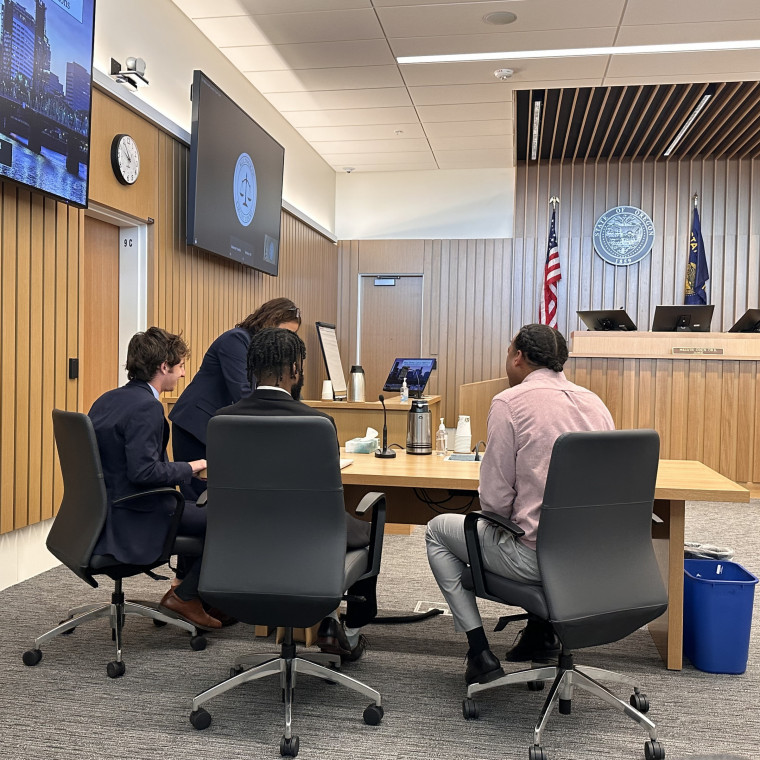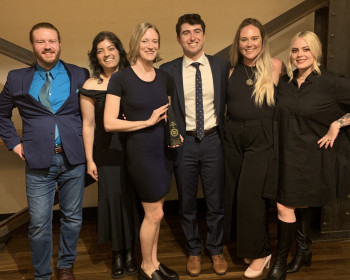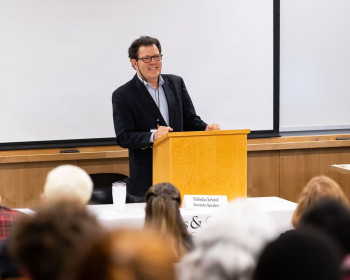Criminal Justice Reform Clinic Transforms Lives with SB 819
Students in the CJRC are actively bringing SB 819 cases, representing clients in cases across the state, writing petitions, and participating in hearings in circuit courts.
Open gallery

The Criminal Justice Reform Clinic (CJRC) at Lewis & Clark Law School continues to make a profound impact through its work with SB 819. This innovative bill, which the clinic wrote and advocated for during the 2021 legislative session, brings defense attorneys and prosecutors together to reevaluate sentences in felony convictions, review outdated and harsh penalties, remove old convictions, and highlight the potential for positive change in the criminal legal system.
Under the leadership of Professor Aliza Kaplan, the clinic’s director, students represent individuals seeking review under SB 819, drafting the petitions and participating in hearings in circuit courts around the state.
This year, CJRC students have been especially busy, with six hearings in a row on a recent Friday and seven more taking place this week. CJRC’s cases are in counties all over the state, such as Multnomah, Lane, Wasco, Columbia, and Malheaur.
Kaplan reflects on the meaningful impact of these cases, saying, “It’s so rare in the criminal legal system to do something jointly between the defense and the prosecution that everyone feels good about. For us, we get to see our clients on their best days.” She highlights how the clinic’s work is pivotal in changing the lives of those unfairly subjected to harsh sentences or who are no longer the people they were at the time they committed the crimes at issue. “It is incredible to see the law we wrote and advocated for being put to use by us and others and really making a difference in people’s lives. SB 819 won’t always work for everyone, but when it does work, it offers a second chance to those who have been unfairly sentenced or for people who have transformed their lives, giving them the opportunity to put their past behind them and start a new chapter in their lives,” she shared.
Kelsey Wernsman ’24, one of the students involved in the SB 819 work, shared her experience: “Doing this has only affirmed my desire to work in the criminal law sector and try to make positive change if possible.” She spoke of the emotional and positive atmosphere in the courtroom during SB 819 hearings. Wernsman recently represented a client in Lane County and has another round of hearings on the horizon.
Madison Wood ’25 emphasized the deep connection she forms with her clients and the privilege of being their advocate. She believes that SB 819 provides people with another chance to overcome the barriers associated with felony convictions and incarceration.
As the CJRC continues to change lives through SB 819, recent grad Stephanie Grayce ’23 joined the team as the new clinic lawyer, working alongside the students and Professor Kaplan. “I had the privilege of being a clinic student last year, working on SB 819 petitions. I saw firsthand the transformative power of hope and second chances brought about by SB 819. To say that it is inspiring is an understatement,” she said. “Now, as a clinic lawyer, I have the privilege of carrying on this critical work and helping to guide law students in their work, assisting clients with the process. Working with our clients has taught me to never underestimate the power of hope and the potential for someone to change.”
The Criminal Justice Reform Clinic’s SB 819 work is a reminder that collaboration and dedication can lead to transformative change in the criminal justice system.
Learn more about the CJRC here.
Law Communications is located in room 304 of Legal Research Center (LRC) on the law Campus.
MSC: 51
email jasbury@lclark.edu
voice 503-768-6605
Cell: 626-676-7923
Assistant Dean,
Communications and External Relations, Law School
Judy Asbury
Law Communications
Lewis & Clark Law School
10101 S. Terwilliger Boulevard MSC 51
Portland OR 97219

